Finding the perfect family dog involves considering many factors, and shedding is a big one for many potential owners. If you’re dreaming of a small, cuddly companion who won’t leave a trail of fur on your furniture, you’re in luck! This guide explores the best small dog breeds that don’t shed (or shed minimally), allowing you to enjoy all the joys of dog ownership without the constant vacuuming.
Top Small Dog Breeds That Don’t Shed
Here are some of the best small dog breeds that are known for being low-shedding or non-shedding, making them ideal for families with allergies or those who simply prefer a cleaner home.
Affenpinscher
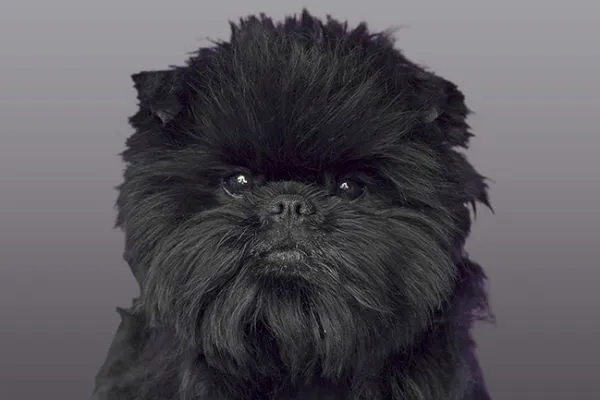 Affenpinscher, a small black dog with a distinctive monkey-like face, standing alert.
Affenpinscher, a small black dog with a distinctive monkey-like face, standing alert.
The Affenpinscher, whose name means “monkey-like terrier,” is a small, intelligent breed with a distinctive look. Despite their size, these toy dogs are fearless and alert. Affenpinschers shed very little and have almost no doggy odor. A quick brush a couple of times a week will keep their wiry coat looking great.
Basenji
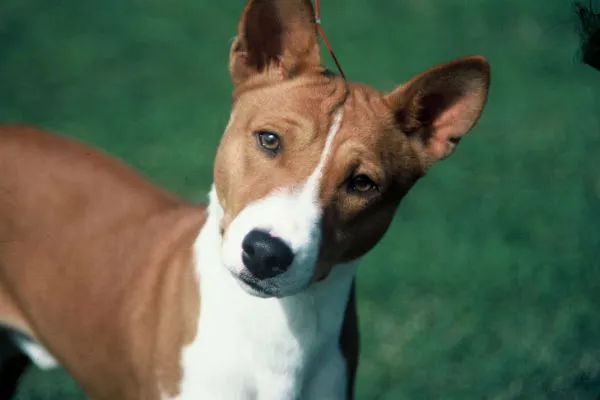 Basenji, a small, short-haired dog with a red and white coat, standing attentively.
Basenji, a small, short-haired dog with a red and white coat, standing attentively.
For those who appreciate the hound personality but dislike the shedding and odor, the Basenji is a great choice. They shed very little, and their short coat requires minimal grooming. Basenjis are also known for being quiet, making them good apartment dogs, provided they get enough exercise.
Bichon Frise
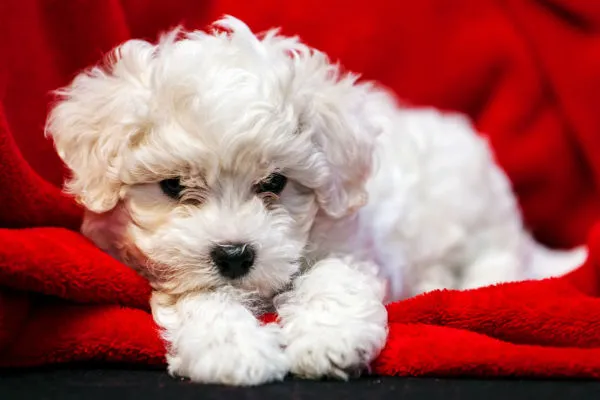 Bichon Frise, a small, fluffy white dog with a cheerful expression, sitting prettily.
Bichon Frise, a small, fluffy white dog with a cheerful expression, sitting prettily.
The Bichon Frise is a classic non-shedding breed, making them ideal for allergy sufferers. However, their coat requires regular grooming, brushing, and bathing to maintain their signature powder-puff appearance.
Bolognese
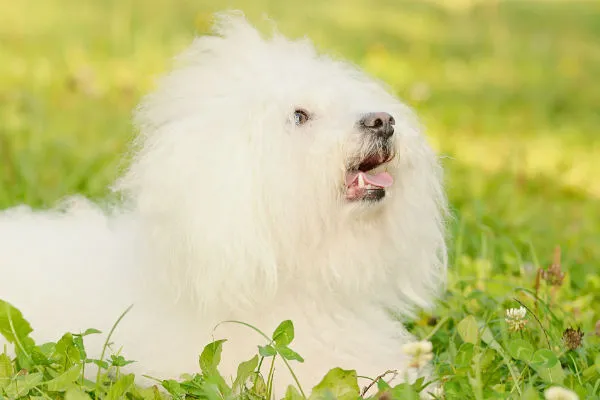 Bolognese, a small, fluffy white dog similar to a Bichon Frise, looking directly at the camera.
Bolognese, a small, fluffy white dog similar to a Bichon Frise, looking directly at the camera.
Similar to the Bichon Frise, the Bolognese has a fluffy coat composed of hair rather than fur. They don’t shed, but regular brushing is necessary to remove dead hair and prevent mats. Daily grooming will keep your Bolognese looking its best.
Brussels Griffon
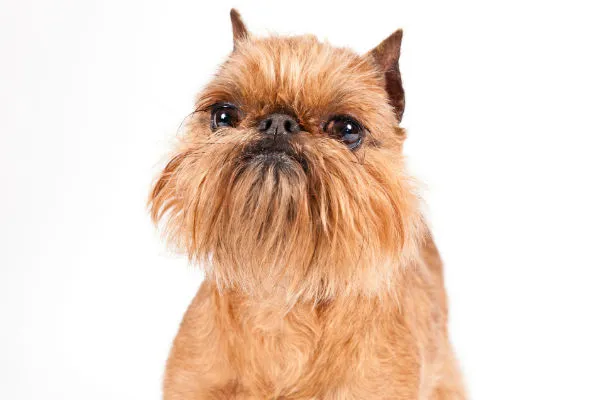 Brussels Griffon, a small dog with a distinctive beard and mustache, looking curious.
Brussels Griffon, a small dog with a distinctive beard and mustache, looking curious.
The Brussels Griffon is a small dog with a big personality. Both smooth-coated and rough-coated varieties are minimal shedders and thrive with regular grooming. A daily walk and indoor play are usually sufficient for their exercise needs.
Chinese Crested
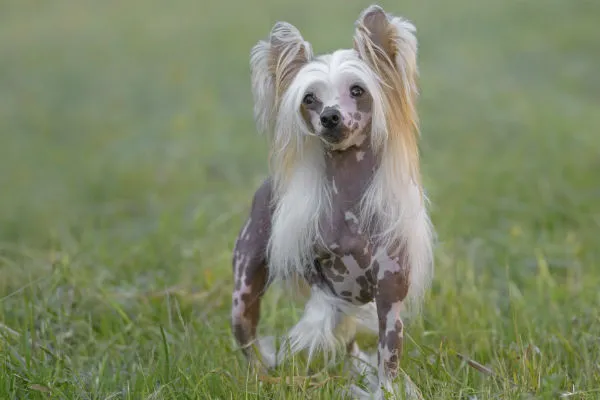 Chinese Crested, a hairless dog with fur only on its head, tail, and feet, standing gracefully.
Chinese Crested, a hairless dog with fur only on its head, tail, and feet, standing gracefully.
If shedding is a major concern, the Chinese Crested is worth considering. This breed comes in two varieties: hairless and powderpuff. Hairless Chinese Crested have hair on their head, tail, and feet, while the powderpuff has a fine coat that sheds minimally. Hairless dogs require extra skin care, including protection from the sun and cold.
Coton de Tulear
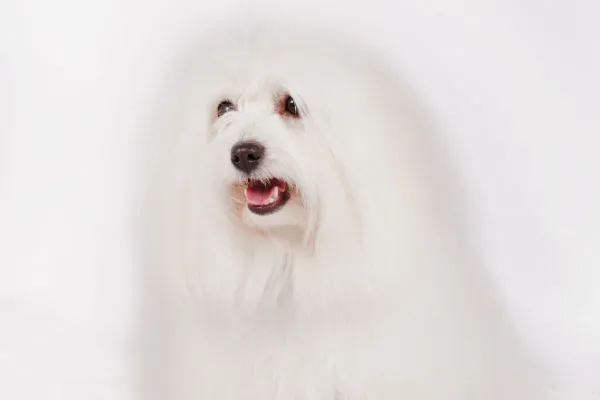 Coton de Tulear, a small, fluffy white dog with a happy expression, sitting in the grass.
Coton de Tulear, a small, fluffy white dog with a happy expression, sitting in the grass.
The Coton de Tulear has a long, fluffy coat that is considered hypoallergenic, making it a good choice for allergy sufferers. Daily grooming is required to maintain their coat, but their gentle nature makes the effort worthwhile.
Havanese
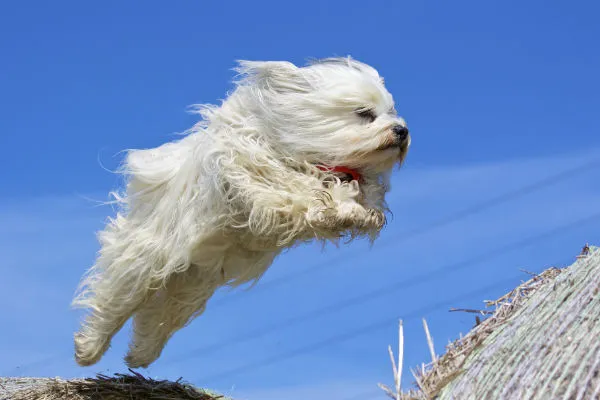 Havanese, a small, fluffy dog with a long, silky coat, looking playful.
Havanese, a small, fluffy dog with a long, silky coat, looking playful.
These charming Cuban dogs offer a spunky personality and a coat that doesn’t shed. Weekly brushing and regular baths are needed to keep their coat clean and healthy.
Maltese
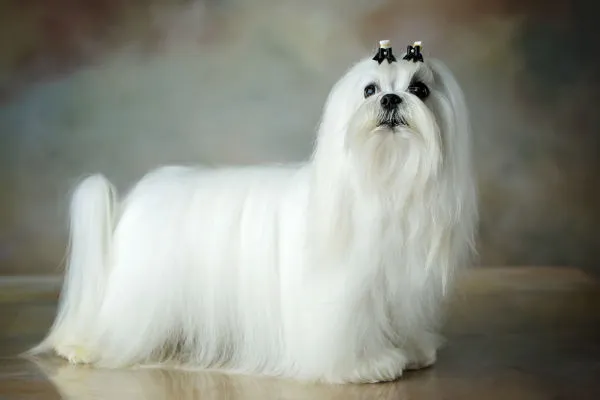 Maltese, a small, white dog with a long, flowing coat, sitting regally.
Maltese, a small, white dog with a long, flowing coat, sitting regally.
Maltese dogs have been charming humans for centuries. Their long, white coats shed very little, making them ideal lap dogs. Regular brushing is required to prevent mats, and occasional baths will keep their silky hair clean.
Lhasa Apso
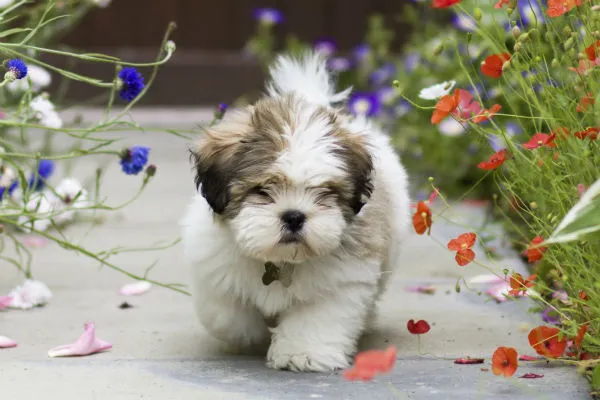 Lhasa Apso, a small dog with a long, flowing coat, looking alert.
Lhasa Apso, a small dog with a long, flowing coat, looking alert.
This small dog breed from Tibet makes an excellent companion. Lhasa Apsos don’t shed, but their coats require maintenance. Many owners keep their Lhasa Apsos clipped in a “puppy cut” to avoid daily grooming.
Miniature Schnauzer
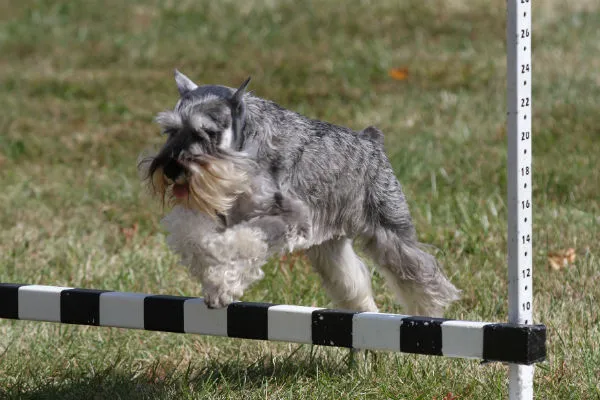 Miniature Schnauzer, a small, wiry-haired dog with a distinctive beard and eyebrows, standing proudly.
Miniature Schnauzer, a small, wiry-haired dog with a distinctive beard and eyebrows, standing proudly.
The Miniature Schnauzer is a smart, trainable, and cheerful dog that sheds very little. Weekly brushing and regular grooming will keep them looking their best.
Poodle (Miniature and Toy)
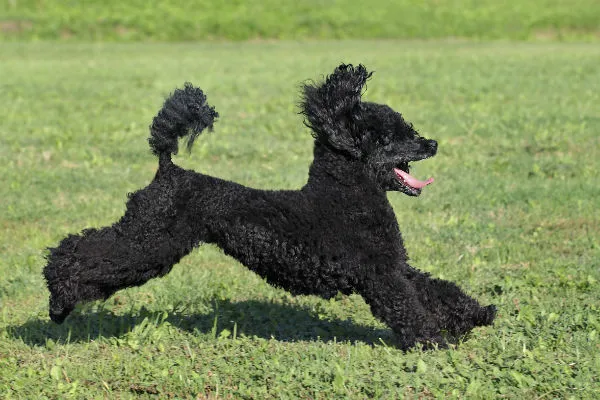 Poodle, a small, curly-haired dog with a classic poodle cut, looking elegant.
Poodle, a small, curly-haired dog with a classic poodle cut, looking elegant.
Poodles are often the first breed that comes to mind when thinking about non-shedding dogs. Miniature and Toy Poodles offer the same non-shedding and hypoallergenic qualities as Standard Poodles, just in a smaller package.
Scottish Terrier
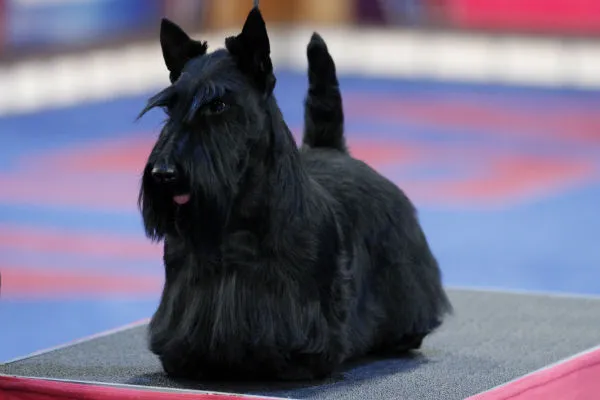 Scottish Terrier, a small, black dog with a wiry coat, standing confidently.
Scottish Terrier, a small, black dog with a wiry coat, standing confidently.
The Scottish Terrier, or Scottie, is a bold and confident breed with a wiry coat that sheds very little. Regular brushing, grooming, and occasional hand-stripping are needed to maintain their coat.
Shih Tzu
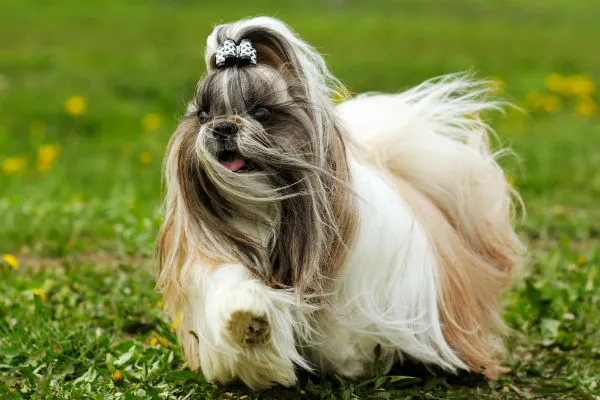 Shih Tzu, a small dog with a long, flowing coat, looking friendly.
Shih Tzu, a small dog with a long, flowing coat, looking friendly.
The Shih Tzu is another breed with a long pedigree. Their long, silky hair is very low-shedding and looks regal when brushed out. They were bred to be house pets, and their gentle nature makes them exceptional companions.
West Highland White Terrier
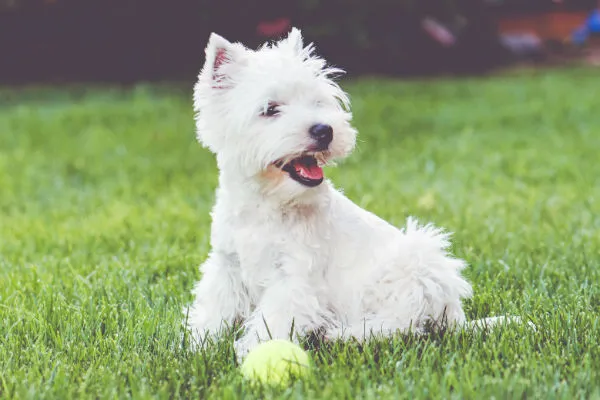 West Highland White Terrier, a small, white dog with a wiry coat, looking curious.
West Highland White Terrier, a small, white dog with a wiry coat, looking curious.
The coarse, white hair of the West Highland White Terrier, or Westie, sheds very little. This intelligent and happy dog has moderate energy levels and an independent streak.
Xoloitzcuintli
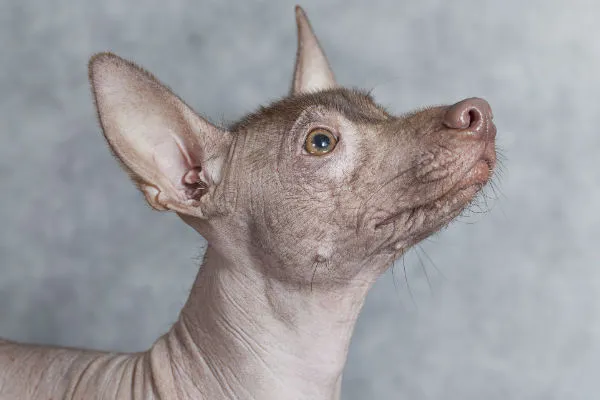 Xoloitzcuintli, a hairless dog with wrinkled skin, standing serenely.
Xoloitzcuintli, a hairless dog with wrinkled skin, standing serenely.
Also known as the Mexican Hairless, the Xoloitzcuintli can be hairless or coated. Hairless varieties have a small amount of hair on their heads, and the coated variety has a short coat that sheds minimally. Hairless dogs require extra skin care.
Yorkshire Terrier
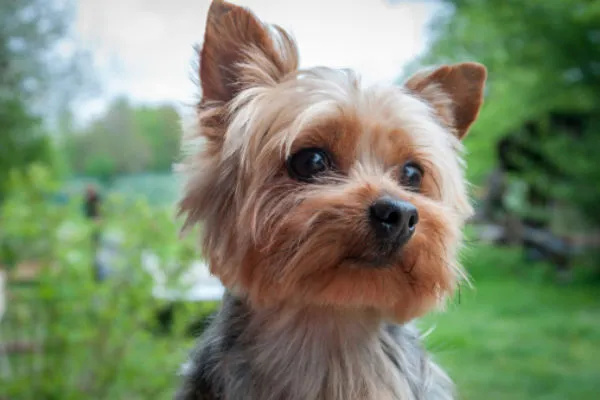 Yorkshire Terrier, a small dog with a long, silky coat, looking playful.
Yorkshire Terrier, a small dog with a long, silky coat, looking playful.
The Yorkshire Terrier, or Yorkie, is a toy breed full of personality. These spunky lap dogs do not shed, and their silky coats are beautiful when brushed out daily.
Other Small Terrier Breeds
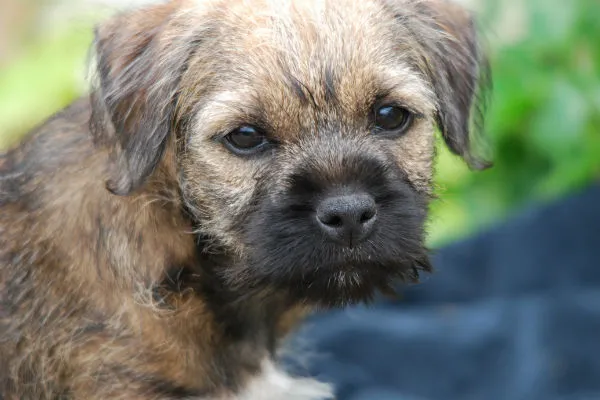 Border Terrier, a small, wiry-haired dog with a playful expression, sitting in the grass.
Border Terrier, a small, wiry-haired dog with a playful expression, sitting in the grass.
The Terrier group is full of small dogs that don’t shed or shed minimally. Wiry- and coarse-haired Terriers shed less than other breeds. Some other non- or low-shedding Terrier breeds include:
- Border Terrier
- Cairn Terrier
- Dandie Dinmont Terrier
- Lakeland Terrier
- Norfolk Terrier
- Norwich Terrier
- Sealyham Terrier
- Welsh Terrier
Choosing the Right Non-Shedding Dog for Your Family
While these breeds are known for being low-shedding, it’s important to remember that no dog is truly 100% non-shedding. Some minimal shedding may still occur. Also, even non-shedding breeds require regular grooming to maintain their coat health and prevent mats.
Before choosing a breed, consider your lifestyle, energy levels, and grooming preferences. Research each breed thoroughly to ensure that it’s a good fit for your family.
Finding the best small family dog that doesn’t shed is possible with careful research and consideration. Enjoy the companionship of your new furry friend without the constant worry of dog hair!
